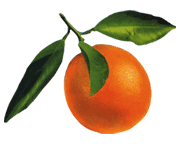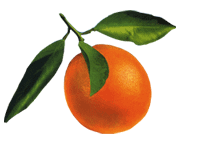01 Oct Call Waiting
As my family sits down to dinner I’m waiting for the phone to ring.
The other day I wondered why political and charitable calls at dinnertime were exempt from the Federal Trade Commission’s “Do Not Call” list. Now I have a better understanding. According to Charles Lane’s analysis in Saturday’s Washington Post, the FTC created these exemptions because it felt the First Amendment required it to do so.
Lane: The Supreme Court has long recognized a distinction between political and artistic speech, which are entitled to the highest degree of protection from government regulation, and commercial speech, defined as statements about the price and quality of goods or services. Commercial speech is given less protection because the government needs to protect consumers from false advertising and other forms of fraud.
However, that distinction has been called into question at a time when corporations weave socially aware messages within their commercial advertising. For example, retailer Benetton blurred this line when its clothes ads focused on the plight of prisoners on death row. UCLA Constitutional Law Professor Stuart Banner feels “commercial speech doctrine is really in flux” with many Supreme Court Justices expressing doubts about its veracity.
In making the decision to separate commercial speech from political and charitable, the FTC was trying to avoid difficult Constitutional questions that would arise from barring activities like door-to-door religious proselytizing.
The question has to be whether a given regulation of commercial speech is acceptable on its own terms, not in comparison with other forms of speech. The traditional standard is whether the regulation is narrowly tailored to advance a substantial government interest. The no-call registry clearly passes this test.
Editiorial
The Washington Post
Some legal analysts feel the FTC could have avoided this conundrum if it had given the public the right to choose whether it would accept commercial and/or non-commercial telemarketing calls. The Post believes that because the list is an “opt-in” rather than an “opt-out” process it’s not restricting anyone’s free speech.
While some telemarketers have said they will voluntarily stop calling us starting today, I’d rather not rely on direct sales’ goodwill. Its philosophy and past record do not inspire confidence.
Wait a minute. Can I put you on hold? I’ve got a call on the other line.




Donna
Posted at 22:44h, 01 OctoberI got a call on my cell phone about an hour ago from Blockbuster wanting me to do a survey. That’s a case where they have my number because I had to give it to them in order to rent videos. So not only do you have to get on the do not call list but you also have to tell each retailer who has your number not to call you with sales or marketing calls. I hate to think of the time wasted per month of junk faxes, email, snail mail, phone calls and worst of all – messages on my cell phone, email messages that are junk spam. My menu has steps to take not to receive those but for some reason my phone will not allow me to input those steps. And who has time to go to the sprint store?
mobius5@juno.com
Posted at 00:36h, 09 OctoberWith caller id and caller id on call waiting at least it makes it a bit easier to avoid marketers. It’s at least the best solution private citizens have. Even then, running to caller id and wondering whether I should pick up when I don’t know who it is still is pretty irratating.